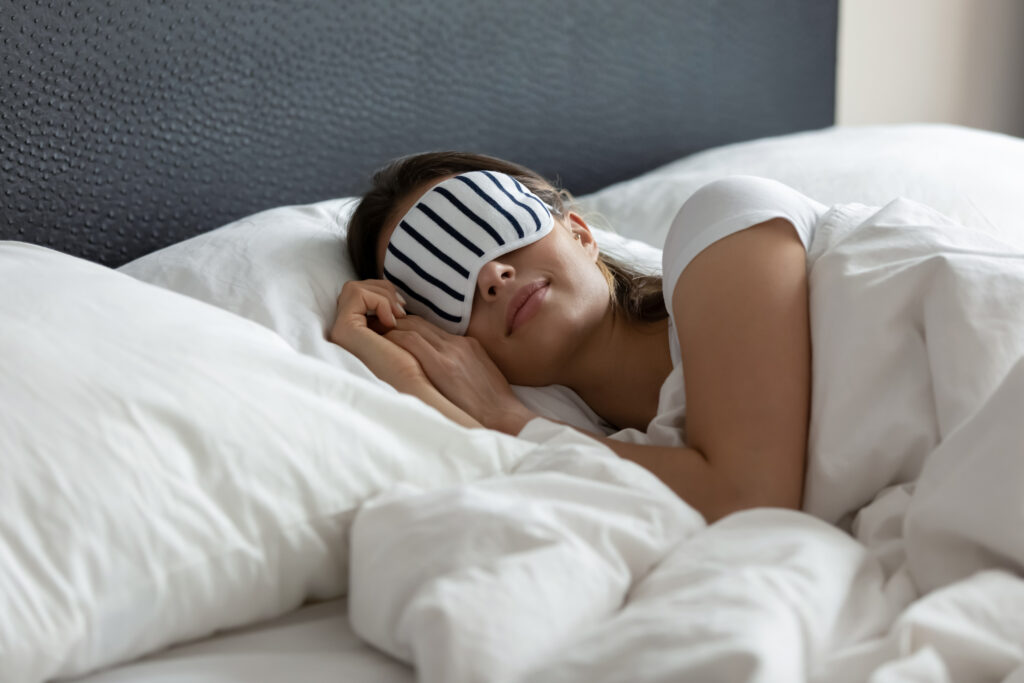Lifestyle medicine pillars for a long and healthy life: Sleep, Friends, Stress Relief

Let’s think about simple commandments for a good, long and healthy life. What comes to our mind? Probably a good night of sleep, no stressful situations, and having good people on our side. They might seem pretty basic, but the impact of those three elements on our health and wellness is quite significant throughout our lives.
Precisely, sleep, stress management, and positive social connections are considered lifestyle medicine pillars in the field of Lifestyle Medicine, and today we discuss them.
1. Benefits of a positive social circle
Let’s start with our social life. It is well known the influence of people around us on our mental health. In the best cases, our family and loved ones make us feel taken care of, they push us to be healthy, try new things, and give us a hand whenever we need it.
- Lower Rates of Anxiety

According to the web portal Better Health, some of the benefits of having social connections are “lower rates of anxiety and depression, higher self-esteem, greater empathy, and more trusting and cooperative relationships”. Sturdy, positive relationships can improve your health and immune system, help you recover from disease, and make your life better in general.
On the contrary, psychiatric studies warn that loneliness brings serious consequences to our bodies, such as disrupted sleep patterns, elevated blood pressure, and an increase in the stress hormone, cortisol.
Loneliness can affect your immune system and reduce your overall sense of contentment. It is also a risk factor for antisocial behaviour, depression, and suicide.
- Better Quality of Life

Research published in the General Psychiatry journal found that for people from 40 to 50 years old, satisfying relationships with partners, relatives, friends, and colleagues are linked to a lower risk of accumulating multiple long-term conditions in old age, such as diabetes, hypertension, heart disease, stroke, chronic obstructive pulmonary disease, asthma, osteoporosis, arthritis, cancer, depression or anxiety.
Feeling alone is particularly dangerous for older people because when their mobility decreases it’s harder to get together with their friends. However, several studies demonstrated that seniors who remain connected with others and have strong relationships are likely to have a better quality of lifestyle, be more satisfied with their lives, need less domestic support, and have a lower risk of dementia and mental decline.
- Physical Well-Being

Teenagers and young adults are also at risk when isolated. The lack of social interaction impacts their physical well-being by increasing the risk of obesity, inflammation, and high blood pressure. These health issues can lead to long-term health problems, such as heart disease, stroke, and cancer.
Not to mention the scars on their mental health and self-esteem, which can lead to very dangerous behaviors towards themselves or society in general.
2. Sleeping, the reset our body needs
Sleeping is an underrated luxury throughout our lives. Many people trade their resting time for parties, movies, work or other causes, and believe that the benefits of limiting the hours they spend in bed outweigh the costs. This is not the case, and experts warn that sleep isn’t just a pause in our day, but an essential part of our health and well-being.
- Intellectual function

“Sleep services all aspects of our body in one way or another: molecular, energy balance, as well as intellectual function, alertness, and mood,” says Dr. Merrill Mitler, a neuroscientist at the National Institutes of Health.
While we are asleep every night, our body goes into “fix-it” mode. Our system flushes out toxins, repairs muscles, bones, and other tissues, and strengthens its ability to fight germs.
- Average sleep over time

Sleep is not a simple process, that is why it takes time. But, how much time does our organism need? It can vary from person to person throughout the years. Babies typically sleep about 16 hours a day, young children require at least 10 hours, while teenagers must have at least 9.
Adults need an average of 7 to 8 hours of rest per night. But, as we mentioned before, that’s not always accomplished. And it’s a growing problem. According to the CDC, 1 in 3 Americans don’t sleep enough on a regular basis, the average person gets less than 7 hours of sleep every night, and 50 to 70 million adults in the country are affected by a sleep disorder. This all affects human health.
Lack of adequate sleep over time is linked to a shortened lifespan and various studies confirm that it increases the risk of developing serious medical conditions, including obesity, diabetes, and cardiovascular disease.
- What can we do to sleep better?

The golden rule every therapist says is to keep disruptions to a minimum. In order to achieve that, we must limit screen time before bed, avoiding using our phones or watching TV.
They also recommend making our bedroom cool, dark, and quiet, avoiding ingesting alcohol and caffeine close to bedtime, and skipping big meals at night.
It is important to stick to a sleep schedule, maybe try reading a book in dim light or listening to calming music. But If you consistently have a problem falling or staying asleep, it is possible that you are suffering from a sleep disorder. The most common are insomnia and sleep apnea, but we can also name restless legs syndrome or Narcolepsy.
3. Managing our stress in a healthy way
The third commandment for healthy living is “Managing Stress”. It is very common to assume that Stress is bad. However, it is only our body’s natural reaction to harmful situations, like slamming the brakes to avoid a car crash. Some people are better at handling that feeling than others.
- Effects on health

Stress by itself is not the problem. What matters is how we respond to consequences in our personal lives. If you smoke, use drugs, overeat, gamble, spend too much, or have risky sex, you are going to face the consequences in your personal life, at work, and not to mention the effects on your health.
- “Fight or flight” feeling

Our bodies are designed to handle small doses of that “fight or flight” feeling. But, experts warn that we are not equipped to handle long-term, chronic stress without serious consequences.
That means that If we are constantly tense, we can experience physical symptoms, such as headaches, an upset stomach, high blood pressure, chest pain, and to have problems with sex and sleep.
- Emotional problems

Stress can also lead to emotional problems, depression, panic attacks, or other forms of anxiety and worry.
But, men and women experience it differently in their bodies. If stress continues for a long time, a man’s testosterone levels could begin to drop, attempting against their sperm production and causing erectile dysfunction or impotence. Besides that, chronic stress may increase the risk of infection in organs like the prostate and testicles.
And for the female population stress can affect the menstrual cycle, leading to irregular, heavier, or more painful periods. Chronic stress can also magnify the physical symptoms of menopause.
Conclusion

As we can see, each one of these pillars is connected to the other. In their own way sleeping, stress, and our social connections, all have the power to make or break our well-being. The good news is that there are plenty of healthy habits to be balanced and nurture positive habits, and it’s never too late to begin.







